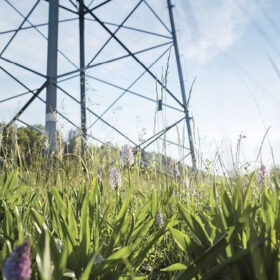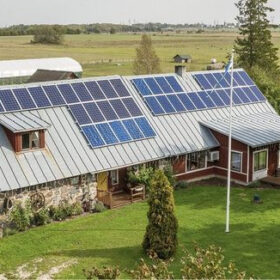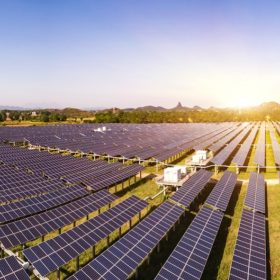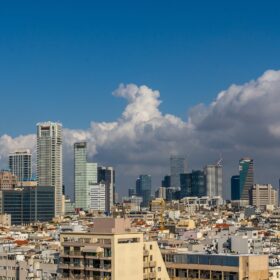Photovoltaics for cold climate data centers
A Japanese-Finnish research group has assessed the levelized cost of energy of solar power plants supplying electricity to data centers in cold climates and has found that PV electricity could be considerably cheaper than grid electricity, even if used with battery storage.
UP: Bringing everyone on board
With Europe’s grids ripe for upgrade and expansion, pv magazine’s Carrie Hampel examines community acceptance of energy infrastructure projects and some of the issues involved. Communication between communities and stakeholders is a two-way street.
How to make seaports into energy communities with PV, wave energy
Researchers have simulated the operation of seven renewable energy communities in the Port of Naples and found them to offer lower life cycle costs. Using varying capacities of solar and wave energy, they were able to optimize the system to a 90% self-consumption rate. They also offered a scheme for the management of a port energy community.
Australian community microgrid calls on residential solar to support energy security
Construction has begun on a solar and battery-based microgrid that is to provide the northeast Victoria town of Corryong with crucial energy resilience, helping keep the power on during emergencies such as bushfires and storms.
Photovoltaics for hydroponic greenhouses
Researchers in Iran have investigated the operation of a real solar-powered greenhouse in the Alborz province and have found that only 4% of the greenhouse’s roof needs to be covered with PV modules to meet demand for lighting and pumping water.
Solar leading Baltic states to energy security
In recent years, the Baltic countries have experienced a solar generation boom as the region seeks to kill two birds with one stone. These nations aim to break away from years-long energy dependence on Russia amid growing security concerns while also continuing to prioritize the green energy transition.
DNV’s solar asset modeling platform launches in Europe
Solar Resource Compass provides users with an online service that can deliver indicative energy production estimates for any solar project, including the comparison of multiple irradiance datasets and the calculation of site-specific losses for dust and snow. Many features are still being beta-tested in Europe, but DNV tells pv magazine it is planning to roll out the tool in most of Asia, the Middle East, Latin America and Oceania in 2024.
Israel to provide incentives for hybrid solar inverters
Israel’s Ministry of Energy says it will exempt hybrid solar inverters from purchase tax and customs duties. It claims that these policy mechanisms will help during energy emergencies.
Masdar buys out Greece’s Terna Energy in €3.2 billion deal
Masdar has agreed to acquire initially 67% of Greece’s Terna Energy, a developer of clean energy infrastructure, in a €3.2 billion ($3.4 billion) deal.
Alight secures grid connection for 100 MW solar park in Finland
Swedish solar developer Alight has obtained a grid connection for its 100 MW solar project in Eurajoki, western Finland. Construction is expected to start later this year.










